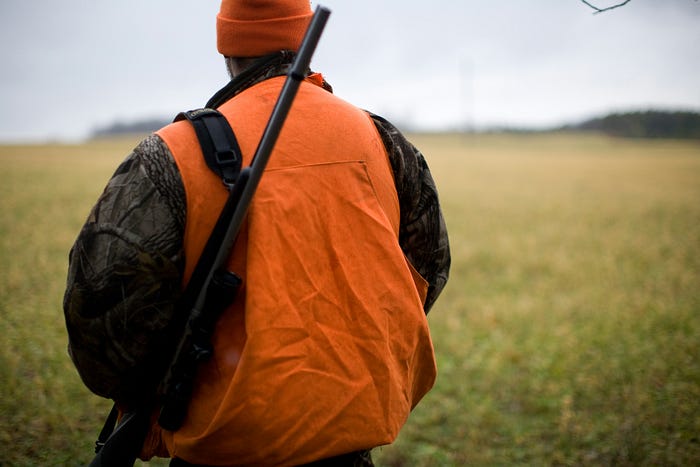Rainsford and Zaroff: A Deep Dive into the Most Dangerous Game
Written on
Chapter 1: Introduction to the Hunt
As someone who cherishes animals, I find hunting narratives quite captivating, especially those where nature outsmarts the reckless hunters. However, today's tale diverges from that theme. Instead, Richard Connell's "The Most Dangerous Game" provides an intriguing exploration of the extremes to which individuals may go when they become the hunted by their own species.
This story revolves around the intense conflict between two characters, each ultimately facing the consequences of their actions. The protagonist, Sanger Rainsford, encounters the harrowing reality of being hunted, while General Zaroff learns a critical lesson about treating humans as mere game. Or at least, he should have.
Caution: Spoilers Ahead! Proceed with care if you wish to read the story first!

Chapter 2: Rainsford's Struggle for Survival
Rainsford is given a mere three days to rely on his wits and instincts while being pursued by Zaroff. A noteworthy moment occurs just before the hunt commences when Zaroff coerces Rainsford into participating, promising freedom if he prevails. However, when Rainsford refuses to keep silent about the island, Zaroff ominously states:
"'Oh,' said the general, 'in that case... But why discuss that now? Three days hence we can discuss it over a bottle of Veuve Cliquot, unless...'"
This statement leaves me pondering the implications of those ellipses. Would Zaroff have genuinely allowed Rainsford to leave had he emerged victorious? Given that Zaroff has never lost a hunt (excluding the one where he unleashed his hounds on a single man), he likely believed Rainsford stood no chance, a notion supported by how swiftly he discovers Rainsford on the first day.
In the climactic moments, Rainsford's actions provoke further curiosity. Although he has the upper hand, he does not revel in victory. Despite having the chance to escape before confronting Zaroff, he chooses to return, stating:
"Rainsford did not smile. 'I am still a beast at bay,' he said, in a low, hoarse voice. 'Get ready, General Zaroff.'"
This demeanor suggests that Rainsford remains haunted by Zaroff's earlier threats. His voice is strained, and he does not express joy, instead preparing for a confrontation. This scenario feels less like a traditional victory and more like a hollow triumph, raising the question: why did he not flee when he had the opportunity?
The Underlying Motivation for Rainsford's Return
Rainsford's transformation over the three-day ordeal hints that his return may symbolize something deeper. Perhaps it represents a necessity to confront Zaroff's malevolence, or a troubling realization that Rainsford may mirror the inhumane qualities of the general, as evidenced by his choice to rest in the bed of his vanquished foe.
The ambiguity of the ending leaves us questioning whether Rainsford truly feels victorious or if he has adopted the very traits he once detested. Did he liberate Zaroff's captives, or does he now harbor intentions akin to those of the man he killed?
Chapter 3: Zaroff's Nonchalant Pursuit
On the first day, Zaroff easily tracks Rainsford but opts to let him go for the moment, delaying the hunt. This behavior underscores Zaroff's skill and hints at his deep-seated boredom with the chase. Observing him act so casually adds a layer of dark humor, as he clearly respects Rainsford as a worthy opponent, despite their differing views on the hunt.
The shift in Zaroff's demeanor becomes apparent when Rainsford expresses disdain for his hunting practices. While Zaroff may feel slighted, his admiration for Rainsford remains evident, suggesting that had he anticipated Rainsford's potential to challenge him, he might have acted differently.
Could Zaroff Leave His Island to Hunt Rainsford?
Would Zaroff be so determined that he would abandon his island in pursuit of Rainsford? The thought seems unusual since Zaroff possesses all he desires on his secluded isle. However, the arrival of Rainsford introduces a genuine challenge, and losing a prized hound and his servant Ivan weighs heavily on him.
Zaroff's mindset is disturbing; he craves an exhilarating challenge but is accustomed to winning. His encounter with Rainsford disrupts his routine, igniting a desire to pursue the hunter beyond the confines of his island. Should Rainsford manage to escape, Zaroff might feel compelled to eliminate him to prevent any exposure of his gruesome activities.
Zaroff's Unusual Reactions
Interestingly, as the third day unfolds, Zaroff seems preoccupied with his losses rather than actively hunting Rainsford. He appears to be in a state of discontent, attempting to find solace in literature. Zaroff's lack of urgency in tracking Rainsford suggests that he is more disappointed by the situation than concerned about his reputation being tarnished.
It's amusing to reflect on how Rainsford initially considers the cape buffalo as the most dangerous game, only for Zaroff to swiftly prove him wrong. Had Zaroff survived longer, one could only speculate about the depths of danger he could have posed to Rainsford.
Conclusion: A Tense Encounter
This exploration of Rainsford and Zaroff's psychological dynamics invites readers to reflect on the nature of humanity and moral ambiguity. I hope you found this analysis engaging. If you enjoyed the read, please consider clapping, following, and subscribing!
Experience the full audiobook of "The Most Dangerous Game" and delve into the thrilling narrative.
Watch a detailed summary and analysis of "The Most Dangerous Game," exploring its themes and characters.
Like my writing? Support me with a coffee! Or you can donate via my cash app: cash.app/$firekat92.